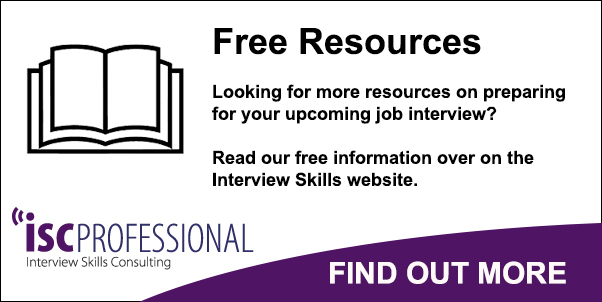Behavioural Interview Tips and Techniques for Success
For candidates more accustomed to traditional recruitment techniques, learning the do’s and don’ts of behavioural interviews can feel rather daunting. But there are a number of tips and techniques to keep in mind to succeed at your next behavioural/competency-based interview.
Understanding the concept and then preparing answers accordingly is the key to success in this scenario. Read on to find out more about behavioural interviews and discover how to crack their code.

What is a behavioural interview?
The rationale behind the behavioural or competency based interview is that a candidate’s past behaviour is the strongest predictor of how they will perform in the future. The interviewee is asked a series of questions designed to discover how they have dealt with situations previously, giving them the opportunity to demonstrate the skills and experience (competences) they applied in these situations.
The interviewee is asked a series of questions designed to discover how they have dealt with situations previously, giving them the opportunity to demonstrate the skills and experience (competences) they applied in these situations.
Thinking it through
The purpose of a behavioural interview is for the panel to find out what you are capable of. Look at the criteria associated with the job you are applying for and write them down- common competences include teamwork, leadership, communication and problem-solving. Research
Research common questions used to test each of the competency/behaviours and make a list. Now think of two or three different examples for each of these criteria and questions which illustrate the skills and experience you used at a particular time.
Imagine you are a member of the interview panel- what answers would their ideal candidate give? Take your time considering what is required and drafting outline answers as this work forms the foundation for a successful interview.
Imagine you are a member of the interview panel- what answers would their ideal candidate give? Take your time considering what is required and drafting outline answers as this work forms the foundation for a successful interview.
Focus and structure
Most behavioural interview questions start with the preamble- tell me about a time when, describe a situation when etc. The temptation when asked such open questions is to produce long-winded never- ending answers. What the panel actually want is a focused, well structured, comprehensive yet concise account of the example you have chosen to give.
The key is to think in advance about the structure of your answers and follow a model which helps you deliver the required information without rambling! A popular method is the STAR approach- in which candidates outline the (s)ituation, (t) ask, (a)ction and (r)esult.
This format provides a framework for you to describe the context in which the example is set (the story- but keep this brief), then the role you specifically played (task), followed by the activity you personally undertook (the action- this should form the bulk of your answer) and finally the outcome or result- which should of course be a positive one.
Plan your answers carefully but deliver them as naturally as possible- done well, the panel should be unaware that you are using the STAR technique.
Delivery on the day
As with any form of interview, you will feel more comfortable on the day if you are well prepared- so don’t turn up without doing your homework on the company, the panel and as previously highlighted the all-important criteria. When you are in the interview:
- Listen carefully to the criteria being asked about and ensure the example you provide matches what the panel is looking for. Adapt your answers as required- don’t just speak from a rehearsed script.
- Be concise and stick to your structure. The interview is likely to be time bound and you want to ensure you hit all the right points in the time which is available.
- Be specific- in your examples explain exactly what you did and how that influenced the positive result achieved. Use data to demonstrate the improvement delivered- increase in profit, uplift in sales etc.
If you need to prepare for a competency-based interview, then read our free information over on the ISC Professional website.

